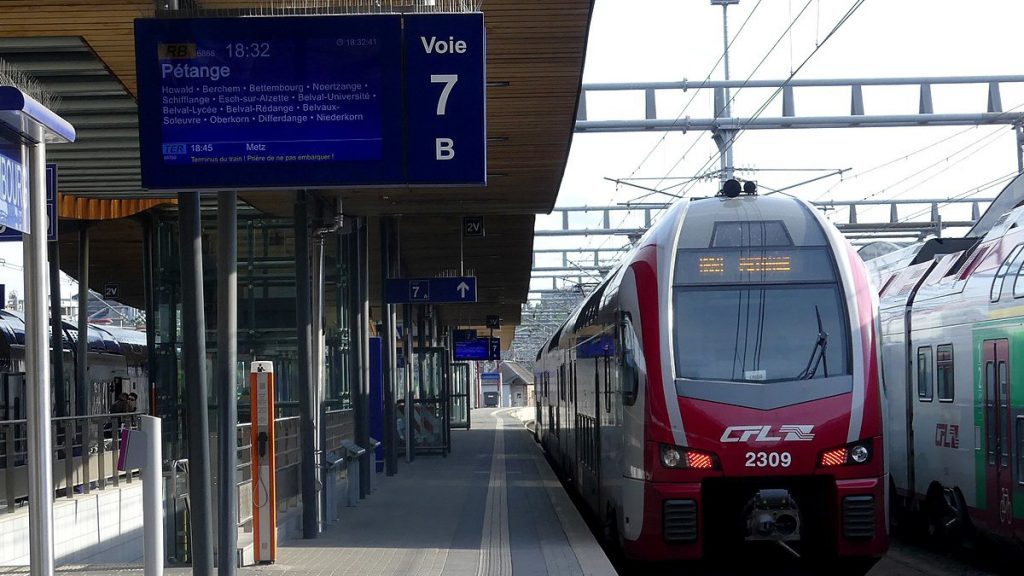Luxembourg Waives Fares For All Public Transport

Commuters in Luxembourg will now be able to ride trains, trams and buses for free after the tiny European nation waived the fares in an effort to alleviate traffic.
Luxembourg has been experiencing heavy traffic jams as many of its residents choose to travel by car. According to the International Business Times, 750 out of 1,000 in the nation own a car, the highest rate in the European Union.
In addition to the residents, as many as 214,000 enter the state from neighboring countries daily, with most of them traveling by car. People from Germany, Belgium and France make up a significant part of Luxembourg’s workforce due to high wages.
A report from 2017 indicated that commuters in Luxembourg City spent around 33 hours in traffic jams. Paul Kirby of BBC surmised that the low fuel costs in the nation also contributes to the heavy traffic.
“Luxembourg has a terrible traffic problem. Major roads are snarled up in the rush-hour, buses are old-fashioned and the rail system is notorious for its delays. Diesel and petrol costs are cheap in Luxembourg, compared with its neighbors, so not only do many commuters from neighboring countries drive to work. but ‘fuel tourists’ cross the border to fill their tanks,” he wrote.
Transport minister Francois Bausch said that the new scheme also intends to help low income residents. “For people with low incomes or [earning] the minimum wage, for them it’s really substantial,” Bausch said. “The main reason is to have a better quality of mobility, and then the [other] reason is clearly also environmental issues.”
Commuters used to pay $2.23 to ride trains and buses. An annual pass for all public transport used to cost $489. Despite the new scheme, commuters who want to travel on the nation’s first-class railway transport will still have to shell out $735 for an annual pass.
Luxembourg will now fund public transport from the national budget. The estimated cost of the new scheme amounts to $45.6 million. “Of course, just because I call it free transport doesn’t mean nobody pays,” said Bausch.
Additionally, the government is planning to spend another $4.3 billion to upgrade the transportation infrastracture to meet the increasing demands by 2025.
Markus Hesse, professor of urban studies at the University of Luxembourg, has expressed doubts that commuters will now stop driving their own cars because of the new scheme. He argued that most people will still opt to use their own vehicles because of the high salaries and low fuel prices in the state.
He also criticized the new scheme, noting that the government has yet to finish the expansion of the tram system.
“They’re investing so much that while the total [public transport] system is being overhauled the delays are actually increasing, because they are working on tracks trying to fix it,” he exclaimed.
Luxembourg, which is about the size of Rhode Island, is the first nation in the world to waive fees for public transport. However, other cities in Europe and the U.S. have already adopted a similar scheme.
In Europe, public transport fees were eliminated in the Estonia’s capital of Talinn, the city of Dunkirk in France, the Belgian city of Hasselt.
In the U.S., Kansas City, Missouri and Olympia, Washington have already abolished public transportation fees, while other municipalities are still considering the costs and advantages of such a scheme.